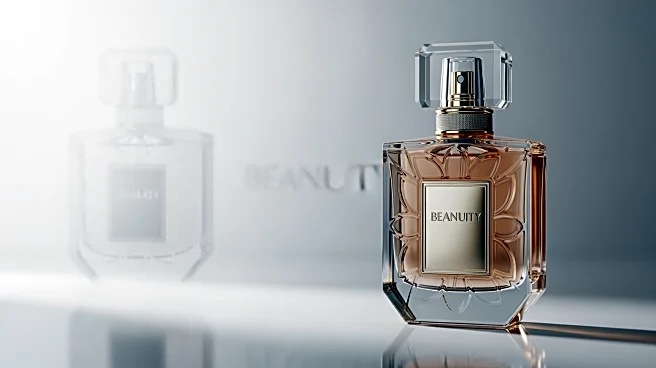What's Happening?
Coty, a major player in the beauty industry, is navigating a significant transition as it prepares for the expiration of its Gucci beauty license, which will be taken over by L’Oréal in 2028. In its latest earnings report, Coty revealed a 6 percent drop
in net revenue to $1.58 billion, with its prestige arm, which includes Gucci, declining by 4 percent. The Gucci license currently contributes approximately $500–$600 million annually to Coty’s revenue. The company is undergoing a strategic shift, focusing on its prestige categories and fragrance lines, while planning to sell off its mass consumer brands like Rimmel and Sally Hansen. Coty aims to strengthen its portfolio with new launches and licenses, including the relaunch of Marc Jacobs Beauty and new agreements with Marni and Etro.
Why It's Important?
The loss of the Gucci license represents a significant challenge for Coty, as it attempts to reposition itself in the competitive beauty market. The Gucci brand is a substantial revenue driver, and its departure could impact Coty's financial stability. The company's strategy to focus on prestige and fragrance categories is crucial as it competes with industry giants like L’Oréal, Puig, and Estée Lauder. Coty's ability to adapt and expand its licensed portfolio will be vital in maintaining its market position. The shift towards owning more brands and launching new labels is seen as a way to gain more control over its destiny, but this approach requires building brand awareness and consumer loyalty.
What's Next?
Coty plans to continue expanding its licensed portfolio and launching new brands to offset the loss of the Gucci license. The company is banking on the growth of its ultra-premium fragrances, which saw a 17 percent increase, and new body spray launches for brands like Calvin Klein and Kylie Cosmetics. Coty anticipates a return to growth in the second half of its 2026 fiscal year, although some analysts, like Barclays, expect this recovery to occur sooner. The company's success will depend on its ability to attract new fragrance licenses and effectively market its new labels.
















